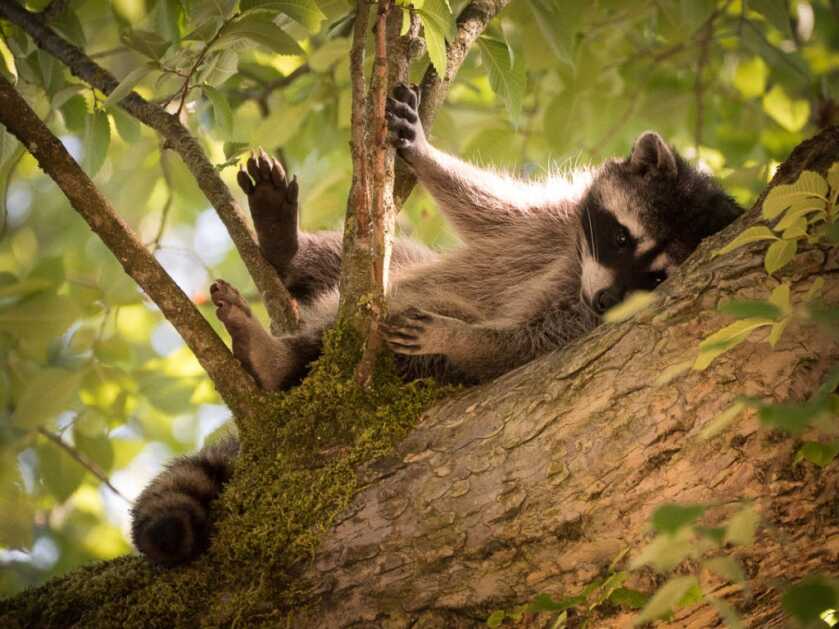
Raccoons were not historically found in the deserts of the Western US, but they have followed agricultural development. Now, my dairy-farming neighbor has a significant problem with raccoons eating his feed grain every night.
I’ve been working to help control their population and have learned a lot about hunting them. The first thing to know about hunting desert raccoons is that you can’t tree them…because there aren’t any trees. These critters live in piles of broken cement, piles of old tires, and the cliffs surrounding the farm. The only water nearby is in the tanks used to water cattle. The little guys are in hog heaven, eating cattle feed each night.
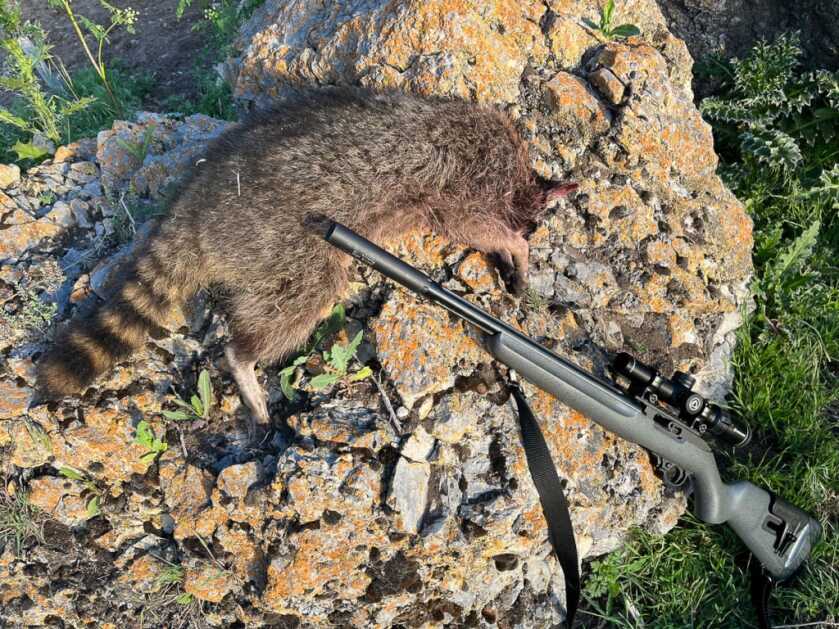
They are nocturnal, but in the warmer months, they are more likely to be active before sunrise than after sunset when the night is still warm. I’ve found them with a thermal scope before dawn and have seen them playing with young even after the sun rises.
I’ve used .22LR (best luck with CCI mini mags), .22HMR, and .223 REM to hunt. The .22LR is ok, but it usually takes more than one shot to stop them before they drop back into a hole. .22 mags are pretty good, but the .223 Rem is the way to go to stop them in their tracks. Go for head shots or heart/lung shots.
Unfortunately, their pelts in the summer are not full and plush like they will be in the Fall. Also, the warm temperatures mean the hair is likely to slip quickly. It’s very hard to keep a pelt in the summertime.
Not worrying about the pelt, however, makes it much easier to harvest the meat. I like to use a gutless method, opening the skin down the back and removing the hams and shoulders without gutting them.
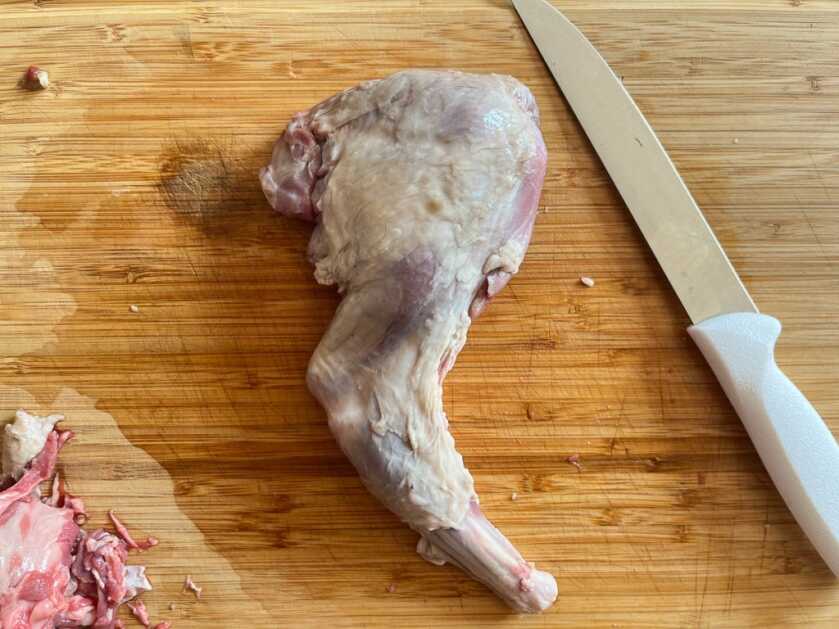
Once you’ve removed the meat from the carcass, you should remove all the fat. In critters like coyotes, raccoons, foxes, and other predators, any funky flavor will reside in the fat. When you remove it, you ensure the meat will be tasty.
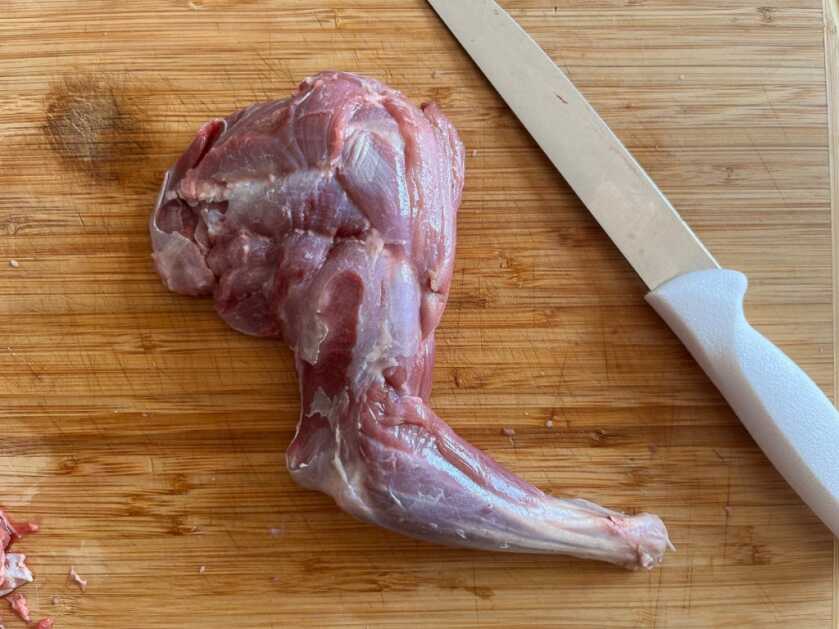
Also like most animals, there are glands in the armpits and hind legs that have to be removed before you cook. They look like fat, but they’re not as white as fat.
Since the meat is small, you’ll keep the whole leg together and cook it all together. Use any recipes made for tough cuts. Also, because raccoons can be scavengers, you should cook the meat to at least 160°F throughout to kill any microbes.
I did a slow-cooker roast here, but using your pressure cooker or doing a classic pot roast would also work well.
I took this to Sunday Dinner at a friend’s house. 16 people ate it and they all agreed that it tasted like a beef roast — what do you expect when it eats the same things as cows each day?
What You Need
- 1raccoon’s meat, trimmed of fat.
- 1.5. lbs potatoes, small bite-sized pieces.
- 1 lb carrots
- 2 Cups grape juice
- 1/2 cup cooking wine
- 2 Tablespoons oil
- Salt and pepper
- Slow cooker
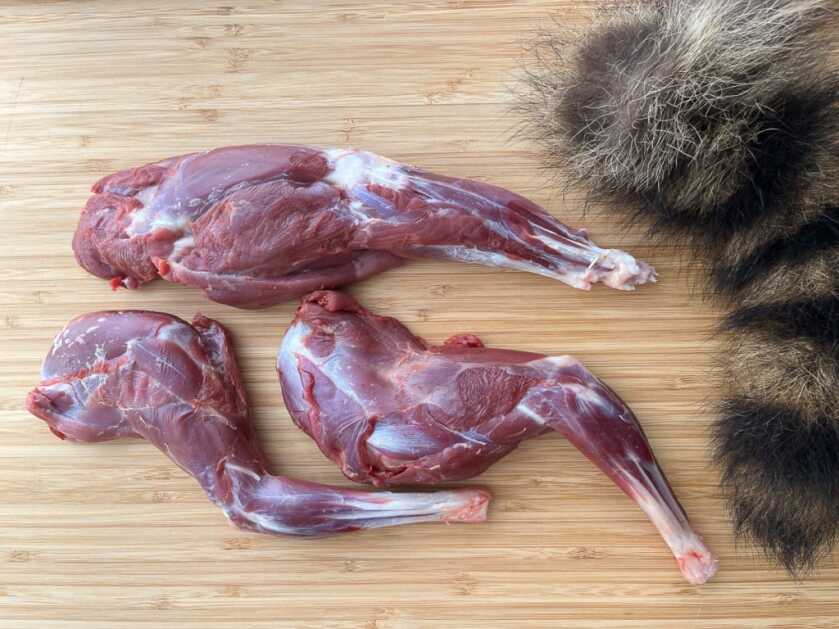
What You Do
Trim all the fat and especially the glands from the meat. Use your favorite seasoning or salt and pepper to season the meat generously.
Add the cooking oil to the crock pot and wipe it around with a paper towel to keep the food from sticking and to make the pot easier to clean.
Place the meat in the pot and add the wine and the grape juice so that the meat is covered about 3/4 of the way. Set the crock pot to HIGH.
Let this cook for at least four hours, and eight would be better. About an hour and a half before you want to eat, add the potatoes and carrots.
Pull the meat from the bones and serve it hot. You can make a gravy from the juices, but the meat is good as-is. You could also pull the meat for sandwiches or burritos.
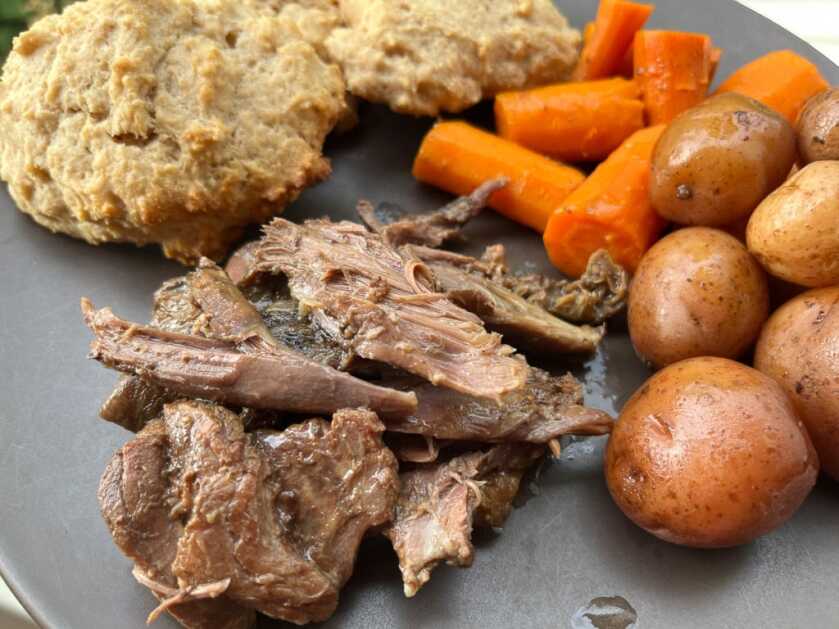
***Buy and Sell on GunsAmerica! All Local Sales are FREE!***

